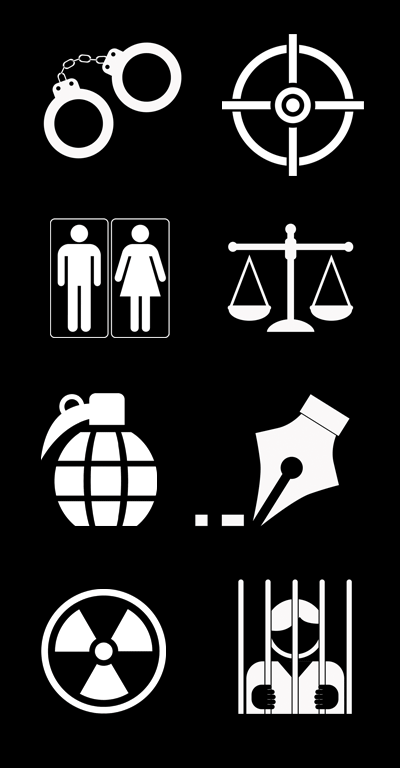HERMAN BENNETT
Professor of History
City University of New York
Herman Bennett teaches in the Ph.D. Program in History at the Graduate Center, City University of New York (CUNY). A student of the early modern African diaspora, Professor Bennett focuses on the earliest formations of blackness, and on how dispossessed peoples navigate power and stake claims within structures of dominance, experiences he views as inseparable from the historical configuration of the West. He has published widely on these and related topics, and has received numerous awards, including two NEH Grants, two Mellon fellowships, an ACLS Burkhardt Fellowship, and Membership at the Institute for Advanced Studies in Princeton. This year he received the American Historical Association Equity Award, awarded for “excellence in recruiting and retaining underrepresented racial and ethnic groups into the Historical Profession.” He is editor of the Blacks in the Diaspora Series at Indiana University Press, a member of the editorial board of the University of Florida Presses and the Social Text Editorial Collective, and has just been named to the editorial board of the American Historical Review. He is currently completing a new book entitled Africans into Slaves: Sovereigns, Polities, and Subjects in the Making of the Atlantic World.
“Slavery & Governance as Violence: Thinking Through the Early Modern Legal Turn”
How might we re-configure the story of slavery as violence in wake of the legal turn that currently frames the earliest representations of the African and black experiences in Americas? By routing this question through a series of archival stories from 17th-century Mexico, including the case of Juan de Morga, whose pained and mutilated body underscored slavery’s brutal reality—the threat and deployment of arbitrary violence—, this paper explores the underlying logic of current histories of slavery.
RAVIT REICHMAN
Associate Professor of English, Brown University
Ravit Reichman is on the faculty of English at Brown University, where she teaches and works in the areas of modernism, law and literature, languages of war, and psychoanalysis. She is the author of The Affective Life of Law: Legal Modernism and the Literary Imagination (Stanford 2009), which examines the relations between justice, jurisprudence, and the novel in the aftermath of war. She is currently at work on a book entitled Lost Properties of the Twentieth Century, a study of property’s relation to the modern experience of ownership, particularly in the context of the traumas of modernity.
"Too Much Property"
What place does property have in confronting, redressing, or gauging violence? This paper considers the experiences of property and inheritance in the postwar era, going beyond the theme of restitution, often invoked in discussions of property after the Holocaust, to the narrative potency—and ultimately, the historical and ethical efficacy—that property taps. This potency excavates new forms of and encounters with violence. The paper addresses the relationship between property and inheritance, as well as among past, present, and future, through a reading of Hannah Arendt’s Between Past and Future together with the recent Israeli film The Flat and Elizabeth Bowen’s The Heat of the Day. I suggest that property functions as a testament to our juridical restlessness, a means by which to resist the dominance of legal means in postwar justice.
DOROTHY ROBERTS
George A. Weiss Professor of Law and Sociology and inaugural Raymond Pace and Sadie Tanner Mossell Alexander Professor of Civil Rights
University of Pennsylvania
Dorothy Roberts is the fourteenth Penn Integrates Knowledge (PIK) Professor, with appointments in the Law School and Departments of Africana Studies and Sociology. An internationally recognized scholar, public intellectual, and social justice advocate, she has written and lectured extensively on the interplay of gender, race, and class in legal issues and has been a leader in transforming public thinking and policy on reproductive health, child welfare, and bioethics. Professor Roberts is the author of the award-winning books Killing the Black Body: Race, Reproduction, and the Meaning of Liberty (1997) and Shattered Bonds: The Color of Child Welfare (2002); co-editor of six books on constitutional law and gender; and author of more than eighty articles and essays in the field's top journals. Her latest book, Fatal Invention: How Science, Politics, and Big Business Re-create Race in the Twenty-First Century, appeared in 2011.
"Race and the Paradox of Violence"
Because of racism, state efforts that purport to control or redress violence have often inflicted worse violence on black Americans. I will examine three examples of this paradox: public torture lynchings, law enforcement responses to domestic violence, and government-supported medical experimentation. How does race help to rationalize state violence for the public good and how should we contest these forms of violence?
CALEB SMITH
Professor of English and American Studies
Yale University
Caleb Smith teaches American literature in the departments of English and American Studies at Yale University. He is the author of The Prison and the American Imagination (Yale UP, 2009) and The Oracle and the Curse: A Poetics of Justice from the Revolution to the Civil War (Harvard UP, 2013). His articles and essays appear in American Literature, J19, Criticism, and elsewhere, and he has written about contemporary culture for The Los Angeles Review of Books, BOMB, and Avidly.org. Details about his past and current projects appear on his personal website.
"Imprisonment Without Justice"
This paper addresses mass incarceration “without justice,” by which I mean both unjust imprisonment and imprisonment which makes no claim to justice at all. If mass incarceration has abandoned the old logics of vengeance and rehabilitation alike, focusing its energies on the mere incapacitation of target populations, what kinds of critique or analysis are available to the humanities? “Imprisonment without Justice” reflects on the challenges and the prospects of this situation.



